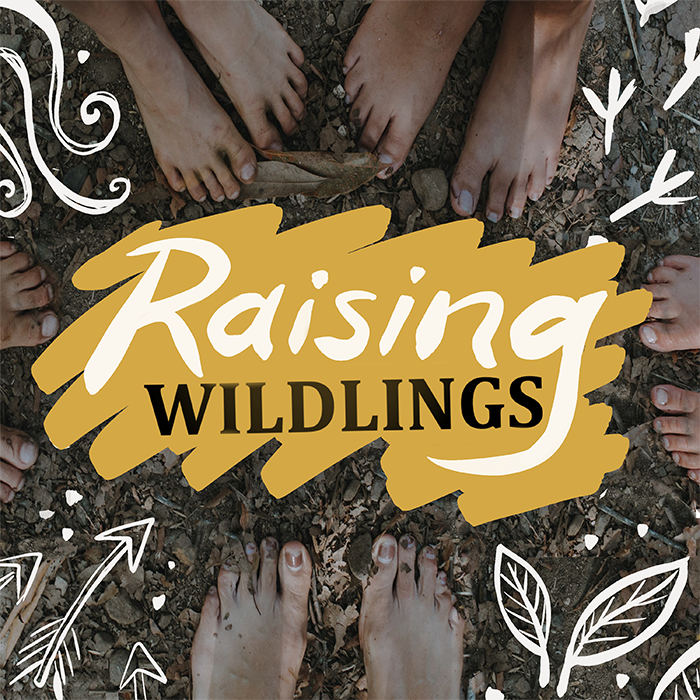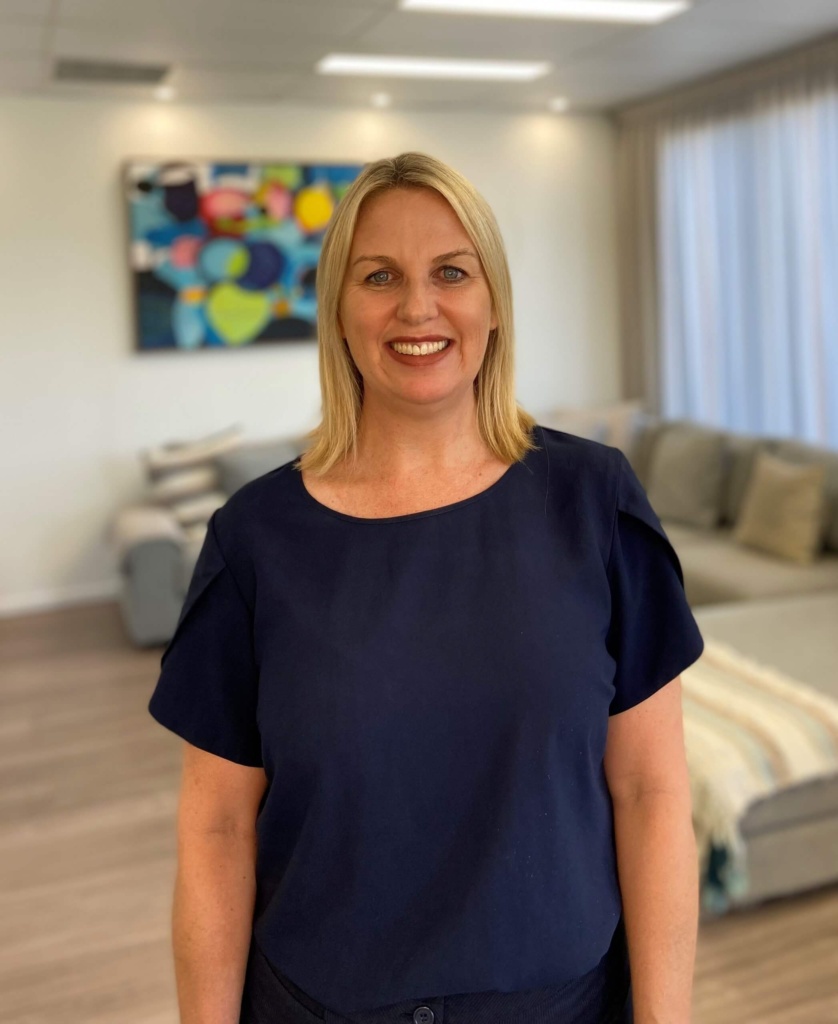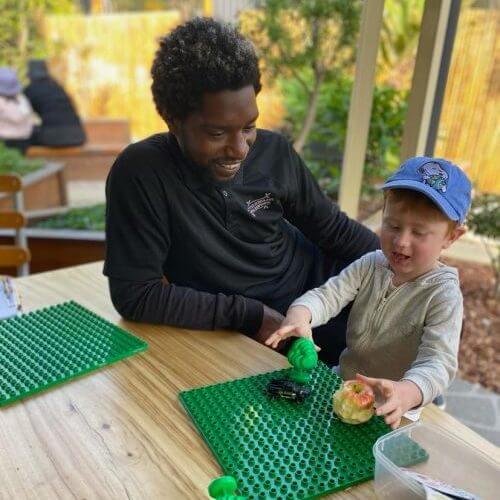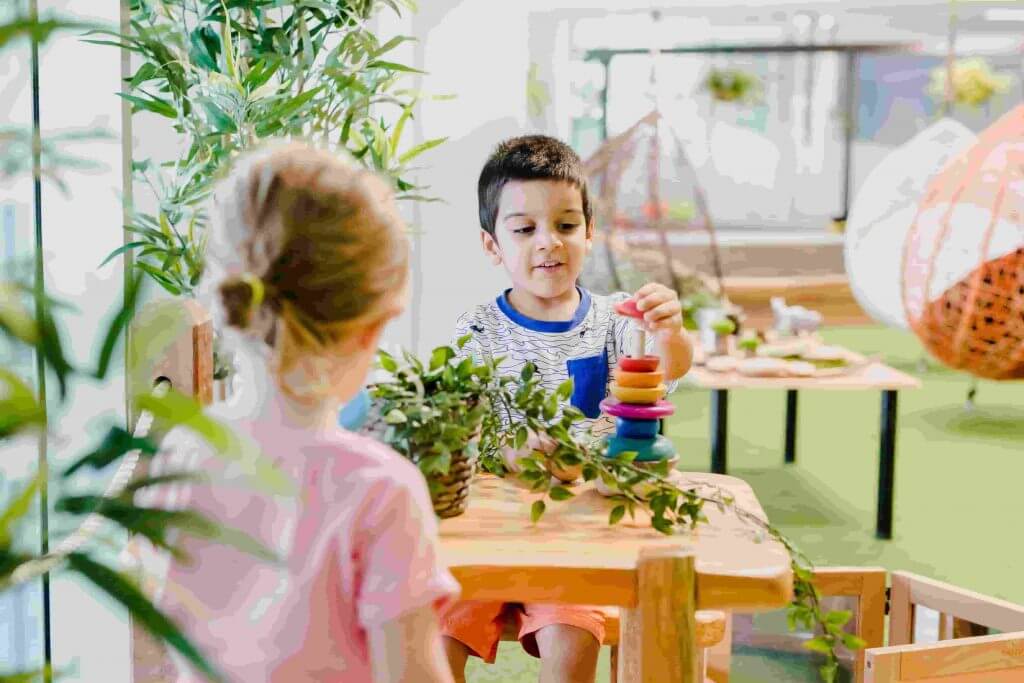What an incredible asset online media has become when it comes to raising or educating children. From YouTube to Instagram, there’s a wealth of expert information at your fingertips that previous generations simply didn’t have. Thanks to online media, parents and educators can now access an array of information, tips, and tricks on child development, parenting, and education.
And of course, podcasts are an excellent way to learn while on the go. You can listen to them while commuting, during your daily walk, or even before bed. Here we have compiled a list of our favorite parenting and child development podcasts, divided into categories for parents and educators. Check them out!

A podcast about parenting, alternative education and stepping into the wilderness with children. Each week, Nicki Farrell and Vicci Oliver interview experts who inspire them to answer questions about parenting and education. They also share stories from families who took the leap, and are taking the road less travelled.
Maggie Dent, one of Australia’s favourite parenting authors and educators gives you practical tips and answers to your real-world parenting dilemmas.
Each episode of Unruffled addresses a reader’s parenting issue through the lens of Janet’s respectful parenting philosophy, consistently offering a perspective shift that ultimately frees parents of the need for scripts, strategies, tricks, and tactics.
Listen to conversations with experts on a variety of topics related to children’s mental health. Episodes offer practice wisdom from experts in the field and will give you an insight into the work and values of the National Workforce Centre for Child Mental Health.
Based on the popular RCH Kids Health Info fact sheets, the Kids Health Info podcast explores common topics and concerns with experts in children’s health. Hosts Margie Danchin, Lexi Frydenberg and Anthea Rhodes are all paediatricians and mums, so they know first-hand what keeps parents up at night. Every episode features guest experts in a range of child and adolescent health specialties, and lots of practical tips and advice.
Hamish Blake chats with other dads he really admires about their approach to ‘dadding’, and in the process hopefully learn a little, steal some of their hard earned wisdom and help dads dad a tiny bit better.
All humans learn through play. Join Kristen RB Peterson of Learning Wild as she chats all things early childhood education, preschool, nature and forest school, homeschool and parenting.
Hosted by international keynote speaker, educator and founder of Wearthy; Lukas Ritson, Play it Forward is an educational podcast about the importance of play. With the increase of technological advancement, it has never been harder to get kids playing outside
Early Childhood perspectives is a fortnightly podcast devoted to exploring the often overlooked concepts and issues of the Australian Early Years Sector.
This podcast covers meaningful topics in early childhood education with some of the sector’s most experienced educators and subject matter experts. With each short episode, its aim is to provoke minds and inspire excellence in early childhood education.
Barbi Clendining from Firefly HR and Saurubh Malviya from We Belong Education have teamed up to bring to you a fun and informative conversation and talk about every aspect of the Out of School Hours profession.
OK, we fibbed. It’s not JUST Australian podcasts. Here’s a few international podcasts that are quite popular with the kids these days. (and by kids, we don’t mean baby goats, or children really, but we’re just trying to sound cool)
Building creativity one leaf and bolt at a time. Join Dr. Carla Gull, American educator and mother of four boys, as she talks about getting outside and exploring loose parts.
A funny take on parenting with UK hosts Rob & Josh as they share their tales of parenting woe and chat to celebrity parents about how they’re coping, or not coping.
Join American clinical psychologist and mother of three Dr. Becky Kennedy on her weekly podcast, as she takes on tough parenting questions and delivers actionable guidance—all in short episodes, because we know time is hard to find as a parent. Her breakthrough approach has enabled thousands of people to get more comfortable in discomfort, make repairs after mistakes, and always see the good inside.
Each episode discusses issues today’s fathers face navigating work, parenthood, relationships and play. We share stories of dads who are active and engaged in the decisions, the drudgery, and the pains and the joys of parenthood. Our parenting podcast not only brings modern dads into the conversation, but also – regardless of gender – our spouses and partners, friends and colleagues, and leaders in business, entertainment and media.
We are excited to welcome Susan Cooper, our new group Pedagogical Leader for Little Scholars School of Early Learning.

Susan will support educators to guide and influence children’s love of learning by fostering family engagement, ensuring fidelity to Little Scholars curricular philosophy, using data to evaluate the effectiveness of the learning program, and ensure we are exceeding standards to optimise learning environments and prepare children for successful futures.
Through pedagogical leadership, Susan hopes to raise the benchmark to overall quality of teaching and recognises that providing children with strong foundations for ongoing learning and development is underpinned by a strong pedagogical practice.
Pedagogy is a form of teaching strategies in the practice of educating. It is the techniques, strategies and approach taken by educators to let learning and development to take place. Pedagogy refers to the interactive process between the teacher, the learner and the learning environment and provides reason to the design of learning spaces, materials, and resources on offer. Pedagogical Leadership supports educators in relating their pedagogy to content knowledge and educational theories.
Susan’s primary role will be to provide leadership to pedagogy and support educators in relating their pedagogy to content knowledge and educational theories. Susan will be working across the 13 Little Scholars Early Learning Campuses mentoring and coaching our educational leaders to implement curriculum delivery. Susan will inspire educators to employ new approaches to their teaching against up-to-date research, which will shape the quality of experiences and interactions across our campuses.

Susan has worked in the Early Childhood Sector for more than 16 years and has extensive knowledge in the field of Pedagogical Practices. Having worked in many fields within the Education sector, from operating a family day care, to being an educator within long day care sector as well as outside school hour care services, through to management and leadership.
“To take on this role is exciting as I can share my passion, influencing pedagogy approaches and practices and place emphasis on children’s play to promote continuous child development and quality outcomes for children,” she says.
Susan is passionate about advocating for children’s rights and is a firm believer of a child-centred approach and that the quality of interactions between adults and children play a fundamental role in stimulating early learning.
According to Jae Fraser, founder of Little Scholars School of Early Learning, pedagogical leadership is about leading or guiding pedagogical practice, supporting Little Scholars educators in their work with children and families, and translating the Little Scholars values and principles into practice.
Why do our children sometimes express some big bursts of negative moods after they come home from a seemingly fun day at childcare? This could be due to after school restraint collapse. Meanwhile, you expect them to come home happy and excited to tell you all about their day of crafts, books, playtime and outings, after all, you often get reports that your child was an angel all day. But when he or she comes home, that angel seems to have taken those wings and flown away, being replaced with something not so angelic.
Some child experts call it ‘after school restraint collapse’, and it seems to happen because children hold it together all day in childcare. Children use a lot of energy being well-behaved, following direction, sitting still, retaining information, and all of this without their primary attachment figures, their parents/caregivers. It can also simply be that some children meltdown because they are tired or overstimulated. Wanting to learn more about Little Scholars and how we deal with these big emotions? Contact us today.
This leaves your child’s best opportunity to release their emotions when they get to a safe place, their home. Those emotions can take the shape of crying fits, whining, screaming, disrespect or physically acting out to parents or siblings.
“I always say to parents, ‘do you have a best friend, someone you let all your emotions out when you see them? You are this to your child and when they see you after a big, busy day at Kindy, it all comes out,’” says Libby Kissell, a lead educator with our Redland Bay South campus.
“Rest assured they had an amazing day, but they let it all out when they see you because YOU are their person, their safe zone.”
Young children haven’t yet developed the essential brain wiring or had the necessary life experience to be able to calm themselves down from big feeling states, which is why they experience such frequent meltdowns. They know they can do this at home because they’re in a place where they’re loved and supported.
Your child is loved and supported by our team at Little Scholars, talk to us if you’re struggling and we can think and discuss how to make things easier for your little one.
“As an adult, we come home from a big day at work and we just want time to ourselves to zone out and not have to think,” says Holly Medbury, an educator from our Stapylton campus.
“We might even get annoyed if people want our attention, kids feel the same, but often have difficulty expressing it. Children are little people with big emotions, they too need some time to ‘chill out’ or a friend to be there and hug, with no expectations. It’s just reassurance for parents out there that they are doing an amazing job and providing useful strategies to help children cope with their big emotions.”

You can send them to their centre with a comfort toy or blanket that they can reach for when they need it. You could also send them with a picture of their family, or a note in their bag telling them how proud you are of them and how much you love them
Spend an extra five to 10 minutes with them before they start their day at Little Scholars. Just a few connected minutes with your child can make a significant difference in their day
Have a conversation with them on the way to childcare or when you get to their centre that focuses on what they can look forward to after you pick them up later, maybe that conversation looks like, ‘When I come to get you, would you like to go to the park or go pick out some new books to read at the library?’
Bring a snack for the trip home, sometimes hunger can be distracting for them and can stir up emotions.
When you pick them up, maybe all they need is a big reassuring hug. Maybe they need quiet. Maybe they’d like to tune out to some music they enjoy for a few minutes. Maybe they need to relax on a park bench or burn some energy at the playground. Follow their lead and take some time before asking questions about their day.
Again, feel free to talk to your educators about what’s happening at home. We have an open-door policy and we’re here for you. Your child’s educators, after spending time with your little one, may have specific ideas on how to help your child or can try to dedicate some quality time with your child to help them relax and feel cared for.
By understanding a little better why there are strong feelings coming from your child after a day of childcare, you are better armed to handle after school restraint collapse or even moderate reactions before their start.
For more information:
Whether your child is starting childcare for the first time or joining us at Little Scholars, change can be intimidating for both the child and parents!
We hope you’ve taken advantage of our playdates so that the centre your child is joining isn’t brand new to him or her. The purpose of our playdates is to familiarise your child (and you!) with their new educators, peers and surroundings, and help our educators get to know your child.
Let your educator know about any settling techniques or routines your child is used to for sleep, as well as your expectations and discipline.
We recommend you talk with your child about what will happen at the centre in the days leading up to their start. Remind them about their playdates, such as if you remember educators or peers’ names, or one part of the daycare they may remember (our playgrounds are always a hit!).
Get their help in packing their daycare bag. Keeping your child an active participant in getting ready our campus helps them get used to the idea. Especially if there’s a special toy or blanket in there for them, they’ll be comforted knowing it’s there if they need it.
Try to keep goodbyes short. Be calm. Of course, respond to your child’s distress and comfort them, but be firm and reassure them you’ll be coming back.
Spend extra time with them to reconnect when you return and ask them about their day. This is also an opportunity to ask your educator for some useful questions that can help encourage your child to open up about their day’s experience.
Don’t forget, we’re here for you too, parents! If you have any questions about how your child is settling in, please don’t hesitate to call your campus or have a conversation with your lead educator at any time.
The decision to enrol children in a reputable, high-quality childcare environment is no longer just to do with the working life of their parents. Increasingly, it’s become an active choice for fostering child development, socialisation and the gathering of real-world practical skills that will positively impact a child’s future academic pathways.

Good early learning and pre-school programs encourage babies and toddlers to become active participants in the world around them. A kindergarten program school transition that follows a set of academic standards, supported by carefully chosen resources and highly-trained staff, has statistically demonstrated increased levels of numeracy and literacy by the time children reach formal schooling. Early childhood care that is lovingly and thoughtfully crafted to ensure best possible outcomes for children provides them with a stepping stone into their primary school education (and beyond) that may not be possible if they were taught purely in a home environment.
”{Childcare} offers long-lasting social, economic and academic benefits for kids and their parents. Studies have shown that children, including babies and infants from the ages of 6 months to 4 years, benefit from the {childcare} environment, including its quality instruction, structure and social lessons.”
– 6 Benefits of Daycare for Young Children, The Childcare Advantage.
Not only is child development enhanced by attending childcare but securing children into an excellent childcare and kindergarten environment can also increase the social support network for parents themselves. The ability to speak to, empathise and make connections with like-minded parents not only provides children with weekend play-date opportunities but the parents themselves are given a much-needed social lifeline.
The Raising Children Network offers parents a glimpse at typical child development milestones. As with any resource, these should be read as a guide instead of a prescriptive map of behaviour.
Many of these milestones can be developed at a greater rate by engagement with highly trained childcare professional educators supported by an innovative and exciting early years learning program. Little Scholars prides itself on delivering the utmost care to the young people who attend its centres across South-East Queensland.
Babies will be encouraged to develop their movement, vision, speech and language and social behaviour through a gentle, compassionate early years program.
Toddlers will work on their emotional development under the watchful eye of trained educators. Their speech development, cognitive leaps and play-based learning will be encouraged through a curriculum designed to promote each child’s abilities.
Children embarking on their kindergarten program will be presented with a range of activities, including key extra-curricular involvement, that will allow them to be learners who question and interact with the world around them rather than passive engagement.
If you’d like to know more about how Little Scholars benefits child development and learning, book a tour today to see our unique curriculum in action.
At Little Scholars School of Early Learning, we’re dedicated to shaping bright futures and instilling a lifelong passion for learning. With our strategically located childcare centres in Brisbane and the Gold Coast, we provide tailored educational experiences designed to foster your child’s holistic development.
Let us hold your hand and help looking for a child care centre. Leave your details with us and we’ll be in contact to arrange a time for a ‘Campus Tour’ and we will answer any questions you might have!
"*" indicates required fields